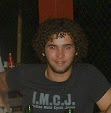Have I mentioned that I am very proud of my country, Cuba? Probably, you guessed it from a different post. The latter was more about our cultural heritage, but there are other levels of our idiosyncrasy that make me really glad to be a Cuban. Some of these levels may be impossible to disentangle from politics, and in fact, they were (are?) boosted by it. I won't launch an ode to the System in Cuba, partially because I think it is full of important faults, but also because there are other objective realities beyond Ideology that one should be bold enough to confront as such. Cuba is well known for their doctors, their health care system, their participation in medical assistance missions around the globe (e.g., Haiti after the earthquake of 2010), as well as for their (free of charges) international school of Medicine for fellows willing to help poor communities back in their home countries. To grasp the essence of Cuban public health care system, you may consult certain indicators by means of the Gapminder toolkit (see Gapminder post), e.g., the comparative evolution of child mortality vs. income per person for Cuba and the US.
Here you have a nice documentary on the "Escuela Latinoamericana de Medicina" (ELAM), which hosts not only Latin Americans nowadays but lots of students with different nationalities, virtually from all around the world. I hope you find it interesting, and that it motivates some reflections since right now people is seeking for alternative and plural health care education.
I finish with a script excerpt from the episode Human Error from House MD TV series.
Chase: They were lost at sea for 3 days; maybe dehydration caused the kidney problems.
[Foreman is laughing at his emails, House walks in]
Cameron: And the double vision?
Chase: Concussion during the shipwreck.
Foreman: It all fits as long as these symptoms started when you think it started.
House: This would be a lot easier if we had her medical records. Any of you certified deep sea divers?
Chase: She's from a dirt poor country in the tropics, infectious disease and parasites are the most likely cause of unexplained pain, fever and skin rash, we might as well start there.
House: [takes off his cap and puts it on a model of a brain] If there's one thing Castro knows is how to look great in green. [he gives pointed looks in Foreman's direction but the duckling has his back to the rest of the room and doesn't seem to see] And if there are two things Castro knows is how to look great in green and train doctors. Even without the medical records, we can assume she was drowned in antibiotics before she risked drowning to see me.
Cameron: So what doesn't Castro know?
House: How to lay his hands on high-tech scanning equipment. [points to the list of symptoms on the board] Pain, double vision, point us towards the head. Cameron, get an MRI, see what's cooking in the old cabeza. [she goes out to do as asked] Chase, check out the husband.
[Foreman is laughing at his emails, House walks in]
Cameron: And the double vision?
Chase: Concussion during the shipwreck.
Foreman: It all fits as long as these symptoms started when you think it started.
House: This would be a lot easier if we had her medical records. Any of you certified deep sea divers?
Chase: She's from a dirt poor country in the tropics, infectious disease and parasites are the most likely cause of unexplained pain, fever and skin rash, we might as well start there.
House: [takes off his cap and puts it on a model of a brain] If there's one thing Castro knows is how to look great in green. [he gives pointed looks in Foreman's direction but the duckling has his back to the rest of the room and doesn't seem to see] And if there are two things Castro knows is how to look great in green and train doctors. Even without the medical records, we can assume she was drowned in antibiotics before she risked drowning to see me.
Cameron: So what doesn't Castro know?
House: How to lay his hands on high-tech scanning equipment. [points to the list of symptoms on the board] Pain, double vision, point us towards the head. Cameron, get an MRI, see what's cooking in the old cabeza. [she goes out to do as asked] Chase, check out the husband.

Comments
Post a Comment